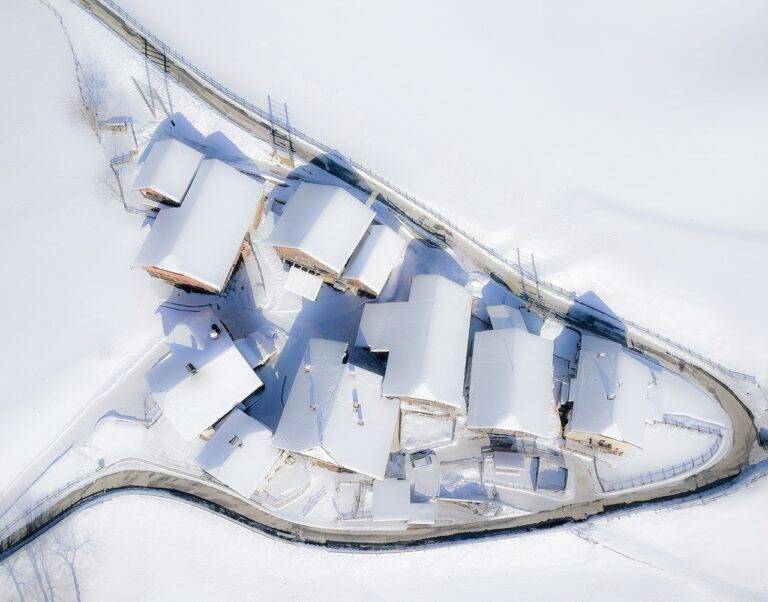Demolition Efficiency: Optimizing Project Timelines: Cricbet99 register, Sky1exchanges id, 11xplay reddy anna
cricbet99 register, Sky1exchanges ID, 11xplay reddy anna: Demolition projects are a crucial part of infrastructure development and urban renewal. However, these projects can often be time-consuming and costly if not executed efficiently. Optimizing project timelines is essential to ensure that the demolition process is completed on schedule and within budget. In this article, we will discuss various strategies and best practices to improve demolition efficiency and streamline project timelines.
Planning and Preparation
One of the key factors in ensuring demolition efficiency is thorough planning and preparation. Before starting the demolition process, it is essential to conduct a detailed site assessment to identify any potential hazards or obstacles that may impact the project. This includes assessing the structural integrity of the building, determining the presence of hazardous materials such as asbestos or lead, and evaluating the site layout to determine the best approach for demolition.
By taking the time to plan and prepare adequately, you can minimize risks and uncertainties during the demolition process, ultimately saving time and money.
Choosing the Right Equipment
The equipment used for demolition plays a significant role in project efficiency. It is essential to select the right tools and machinery for the job based on the size and complexity of the project. This includes excavators, bulldozers, cranes, and explosive demolition equipment, among others.
By using the appropriate equipment, you can speed up the demolition process, increase productivity, and reduce downtime. This not only improves project timelines but also ensures the safety of workers and the surrounding environment.
Implementing Waste Management Strategies
Waste management is a critical aspect of demolition projects, as it helps minimize environmental impact and reduce costs. Implementing effective waste management strategies, such as recycling and reusing materials, can help optimize project timelines by decreasing the time spent on waste removal and disposal.
By segregating materials at the site and working with reputable recycling facilities, you can divert a significant amount of waste from landfills and reduce overall project costs. This not only benefits the environment but also improves the project’s efficiency and sustainability.
Maintaining Clear Communication
Clear communication is vital for the success of any demolition project. By maintaining open lines of communication between all stakeholders, including contractors, engineers, architects, and project managers, you can ensure that everyone is on the same page and working towards a common goal.
Regular project meetings, progress reports, and updates help keep all parties informed about the status of the project and any potential issues or delays. This proactive approach to communication can help identify problems early on and address them quickly, ultimately improving project timelines.
Adhering to Safety Regulations
Safety should always be a top priority in demolition projects. By adhering to strict safety regulations and protocols, you can prevent accidents, injuries, and costly delays. This includes providing proper training to workers, conducting regular safety inspections, and using personal protective equipment (PPE) on-site.
Investing in safety measures not only protects the well-being of workers but also ensures that the demolition process runs smoothly and efficiently. By creating a safe work environment, you can minimize risks and disruptions, ultimately speeding up project timelines.
Monitoring Progress and Adjusting as Needed
Monitoring project progress is essential for optimizing demolition efficiency. By tracking key performance indicators (KPIs) such as productivity, cost, and schedule adherence, you can identify areas for improvement and make necessary adjustments to keep the project on track.
Regularly evaluating project timelines, budget allocations, and resource utilization helps you stay ahead of potential issues and make informed decisions to streamline the demolition process. By monitoring progress closely and adapting as needed, you can avoid costly delays and ensure that the project is completed on time and within budget.
FAQs
Q: What are some common challenges in demolition projects?
A: Some common challenges in demolition projects include structural instability, hazardous materials, environmental regulations, and site constraints. By addressing these challenges proactively and implementing appropriate strategies, you can overcome obstacles and improve project efficiency.
Q: How can technology help improve demolition efficiency?
A: Technology plays a significant role in enhancing demolition efficiency. Advanced software tools, drones, and robotics can streamline project planning, monitoring, and execution. By leveraging technology, you can optimize project timelines, reduce costs, and enhance safety in demolition projects.
Q: What are the benefits of optimizing project timelines in demolition projects?
A: Optimizing project timelines in demolition projects offers numerous benefits, including reduced costs, increased productivity, improved safety, and enhanced sustainability. By focusing on efficiency and streamlining processes, you can achieve project goals more effectively and meet deadlines consistently.
In conclusion, optimizing project timelines in demolition projects is essential for ensuring successful outcomes and maximizing efficiency. By following best practices, implementing innovative strategies, and maintaining clear communication, you can streamline the demolition process, reduce costs, and achieve project objectives effectively. By prioritizing safety, sustainability, and productivity, you can enhance project timelines and deliver successful demolition projects.







